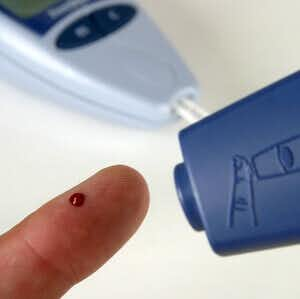
Diabetes has become one of the world’s most troubling diseases. The American Diabetes Association estimates that nearly 28 million Americans have type 2 diabetes. About 8 million have not been diagnosed and another 86 million adults have prediabetes. The CDC projects that within the next three decades, one in three of us will develop this condition.
The consequences of this metabolic disorder are an increased risk for heart attacks, strokes, eye problems, kidney disease, amputations, dementia and death.
What Is Behind the Epidemic?
Why has diabetes become such a rapidly growing epidemic? The usual explanation unfairly blames the victims: They eat too much, they’re overweight and they don’t exercise enough.
Dietary Disasters
But what about factors that may not be under an individual’s control? For decades people were told to reduce the amount of fat in their diet. That results in a diet lopsided in favor of carbohydrates. Sugar is frequently added to low-fat food to make it more palatable. High-fructose corn syrup is found in many beverages and processed foods. We now know that such a diet promotes weight gain, alters metabolism and predisposes people to type 2 diabetes.
Hormone-Disrupting Chemicals
Chemicals in the environment may also contribute. There is a growing recognition that hormone-disrupting compounds used in many common household products can have a negative impact on health. Bisphenol A (BPA), phthalates and organic pollutants found in plastic bottles, metal cans, cosmetics, toys and pesticides are linked to insulin resistance (Diabetes & Metabolism, online, Nov. 20, 2014). This is the first step in the development of type 2 diabetes.
Prescription Drugs That Predispose Patients to Diabetes
Prescription drugs pose an often under recognized risk for diabetes. Some of the most frequently prescribed medications in the world, including beta blockers and thiazide diuretics, can disrupt metabolism and cause type 2 diabetes.
Steroids
Corticosteroids such as prednisone are notorious for this complication. The longer a person takes a cortisone-type drug, the greater the risk. Even inhaled steroids used for chronic obstructive pulmonary disease (COPD) may lead to disruption in blood sugar control (American Journal of Medicine, Nov., 2010).
Statins
Perhaps the biggest shock to the medical community has been the revelation that statin-type cholesterol-lowering drugs like atorvastatin (Lipitor), pitavastatin (Livalo), rosuvastatin (Crestor) and simvastatin (Zocor) also increase the likelihood of developing type 2 diabetes or making blood sugar control more challenging. Although this connection has been known for several years, the increased risk was not considered significant by many cardiologists. Now, a six-year clinical trial of 8,749 Finnish men has determined that men taking a statin were 46 percent more likely to be diagnosed with diabetes during the study (Diabetologia, online, March 4, 2015).
This connection is alarming because people with diabetes are now routinely prescribed statins to lower their risk of having a heart attack. The very drugs they are taking may make it harder to manage their condition.
It is becoming apparent that the causes of type 2 diabetes are more complex than diet and exercise. It is a mistake to chalk it up to gluttony and sloth, since those who develop type 2 diabetes may have been following their doctors’ recommendations closely. It does make sense to look at environmental factors and stay clear of those that can be avoided.

